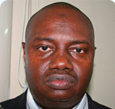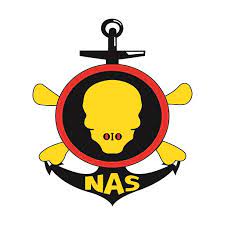The Economic and Financial Crimes Commission (EFCC) said, yesterday, it would soon carry out a critical examination into what past administrations in the country did with the $500 billion generated from oil in the last 50 years, according to its acting Chairman, Mr. Ibrahim Lamorde.
He spoke as President Umaru Yar’Adua reiterated the determination of his administration to boost the war against corruption, pledging a total support for the commission (EFCC) to ensure it frees the nation from the shackles of corruption
Lamorde who spoke at the 5th anniversary celebration and launch of commemorative of anti-corruption stamps, said:
“Nigerian which made nearly half a trillion dollars from oil in less than five decades, a figure that dwarfs the total international aid to the whole of Africa, still has 70 per cent of citizens live in conditions of dispiriting poverty, on incomes of less than a dollar a day. We are going to take a critical look into how this problem arose over a period of the last five decades.”
Warning that the “nation was virtually on a life support machine,” Lamorde said: “The outlook was bleak, and only the illusionists among us failed to see that the nation was virtually on a standstill.
"Corruption had taken an unprecedented stature, assuming an alarming cultural dimension, and frustrating all attempts at effective economic growth and a decent expression of development.”
Emphasising on the challenges ahead for the anti-graft agencies, the acting Chairman said: “The task ahead is huge given the challenge of building an economic model that promotes the country into the league of the 20 leading economies of the world by the year 2020.
“The challenge of maintaining the general economic security and assets of this country and the challenges of ensuring the day-to-day economic well-being of our citizens and of the business community are some of the illustrations of these tasks.
“Central to any solution, however, will be the continued commitment and even greater investment in the anti-corruption fight. Also critical will be a vision which insists that the work of preventing and combatting corruption is not an end in itself, but a means to promote integrity and accountability as well as ensuring proper management of our national public life.”
On strategy mapped out to confidentially confront the looming future of corruption in the country, Lamorde said: “We have a policy that actively builds on our current work philosophy which operates strategically by consciously building bridges between the spheres of corruption prevention and law enforcement, especially as they connect to national reform policies aimed at strengthening our governance systems.”
Yar'Adua hails EFCC
In his speech, President Yar’Adua said: “In just five years, it (EFCC) has come to epitomise our uncompromising stance against corruption in all ramifications. The management and staff deserve commendation from all Nigerians.
“From inception, we have demonstrated our determination towards zero tolerance for corruption as a cardinal principle of governance. Sustained growth and social economic development and national economic regeneration cannot be achieved with corrupted and contaminated governance and political process.
“The debilitating effects of unbridled corruption are multifaceted and multifarious. It encourages the distortion of our moral values and political mis-governance. In five years, EFCC has provided leadership in the cleaning of the financial environment, creating enabling environment for such landmark achievement as successful consolidation of the banking sector.
“The de-listing of Nigeria from the list of the non-cooperative countries and territories regarding international money laundering and the boosting of Nigeria in the international financial circle, the multiplier of this for our national economy and international perception has been tremendous.
“I am informed that the Commission has concluded more than 250 cases and conviction, and recovered assets worth $5 billion.” he said.
Aondoakaa insists on rule of law
On his part, Attorney-General of the Federation, Mr. Michael Aondoakaa (SAN), stressed that “our desire to enthrone and ensure that government activity is done accordingly to law is not a licence for people to hide under it. That is why EFCC’s eyes are wide open because sometimes the law is blind and if the law is blind EFCC eyes are wide open to go there and pick the criminals.
“What we surely insist as a government and in my capacity as a law officer whose responsibility is given in the constitution over prosecution is that it must be done in accordance with the rule of law. “Prosecution must be done according to the rule of law. Once you get a criminal arrested, prefer charges against him; take him to court within 24 hours if the court is within 25 kilometres radius or 48 hours outside 25 kilometres radius.
“I will expect every organisation fighting corruption to comply and that cannot imply in any way government’s interference because it is a constitutional obligations on all Nigerians which we have reiterated. What we have tried to do to strengthen the capacity of the EFCC is to give them the instrument because they must act according to law,” he said.
Sultan wants anti-graft war as strategic national agenda
Also speaking, chairman of the occasion and Sultan of Sokoto, Alhaji Mohammed Sa’ad Abubakar (III), said the war against corruption should be taken to all the spheres of national life. He warned that the war against corruption in the country should not be politicised, rather it should be seen as the strategic national agenda.
Sultan Abubakar while warning the EFCC to steer clear of partisan politics preached spiritual and ethical rejuvenation for the battle against graft to succeed.
There must be no sacred cows — Akiolu
Oba Rilwan Akiolu (1) of Lagos enjoined Nigerians to ensure that the war against corruption was fought to the logical conclusion, insisting that the war must be total and devoid of protecting sacred cows.
“The war against corruption must be total. Fighting corruption must be total. The idea of using the instrument of EFCC to victimise few people must stop. There must be no sacred cows in the fight against corruption,” he said.
By Kingsley Omonobo & Chris Ochayi
Vanguard
Friday, 11 April 2008




